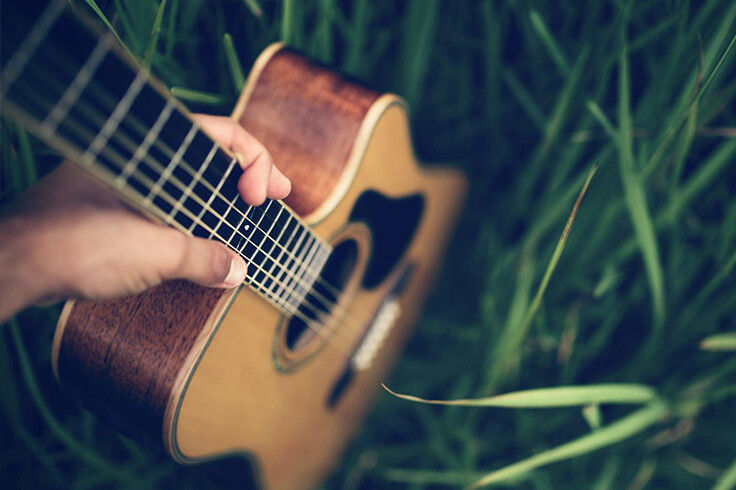- stradivaristringss
- Jan 29
- 4 min read
There are numerous advantages and disadvantages to learning violin for adults. Even when the challenges seem a little bit intimidating, it require taking violin lessons for adults to be able to overcome them and become great violinists. Beginning violin lessons can be a wise decision. You will be able to learn the instrument correctly in this way. Although learning this instrument can be challenging, it can also be rewarding. Let's look at some of the unique obstacles you'll have to overcome as you learn this instrument. Hopefully, this will make you feel rewarded and help you overcome your challenges while learning the instrument.

Time constraints: Time constraints are one of the greatest obstacles for adults who are willing to learn this instrument. If you decide to take adult violin lessons, you will need to practice and take lessons on a regular basis, in addition to having a number of other responsibilities. If you want to become a great violinist, though, you must ensure that you overcome these constraints. You must make violin practice an unavoidable part of your schedule. You can make significant progress by organizing brief but consistent practice sessions.
Simple scales and exercises can help you make the most of your commute, lunch break, and waiting time. You'll be able to learn quickly while using this time management strategy. You also need to find a fellow adult violin student from violin lessons for adults to practice with them. The practice will be more enjoyable and accountable when done with a partner.
Fear of failing: One of the biggest obstacles for adults taking adult violin lessons is a reluctance to move forward out of fear of failing. Being an adult, you might feel that failure can be a little bit intimidating and harassing for you, but it is important for you to understand that learning requires proper time. You are more likely to succeed than fail if you put in a lot of work and practice. Besides, mistakes are a natural part of the learning process. It's critical that you see failure as an opportunity to learn and improve.
When you choose a supportive teacher who provides violin lessons for adults, you will find them creating an encouraging and positive learning environment. You can also join a local violin community or group, where you'll meet a lot of other adults and form a community of support.
Physical limitations: At times, you might think that your body isn't flexible enough to hold and play this instrument correctly. However, you must know that it is not only because you’re an adult, but it is just because you’re a beginner. As you begin taking adult violin lessons and practicing, you will develop flexibility. There are several students who are going through the same problems in the violin classes, and therefore, you will find instructors who will help you and guide you in your progress.
Before practicing, it's important to do a lot of stretching and warm-up exercises. It will be easier for you to take violin lessons if you stretch your fingers, shoulders, and wrist for a few minutes. If you have physical limitations, you can also talk about them with your teacher. They can make sure to adjust the violin's posture or set it up so that you can play it comfortably.
Lack of motivation – One of the biggest challenges for adults is that they start losing interest after a few times. Even if they receive a lot of encouragement at first, they are more likely to lose motivation after a few months when they start facing challenges. Therefore, it is important for you to keep realistic goals. Break down the learning goal into smaller and achievable steps. You will be able to track your progress and stay motivated with this.
In order to share your passion and find inspiration, you must connect with other musicians. Make sure that you acknowledge and celebrate even the slightest of achievements, as this will provide you with motivation. You need to reach the next milestone.
Overthinking – Being adults, we have the ability to overthink, which can sometimes become a problem for many adults. As a result, it is critical that you limit your capacity for overthinking and concentrate more on your adult violin lessons. Overanalyzing and overthinking the game can actually make it more difficult to play.

You always have to be fearless when you’re embarking on a new journey, like learning violin lessons. Do not be afraid; just trust your gut and experiment with the different playing techniques. The more you experiment, the more you'll learn about which playing style works best for you. Rather than worrying about perfection, all you need is to focus on learning. This will make sure that the process becomes loving and enthusiastic. Ask your teacher to provide honest feedback with constructive criticism, as it will help you to identify the areas of improvement and stay on track.
Conclusion
So now that you have learnt the multiple benefits of taking violin lessons for adults, you might be looking for the best institution where you can learn this. While a number of establishments offer adult violin lessons, Stradivari Strings is a good option due to its curriculum and some of the best instructors. According to the adult learners, they can help you to fulfil your requirements. They can deal with the most common challenges and ensure that their curriculum is engaging and interactive.
So, get your name enrolled today and start the journey.





